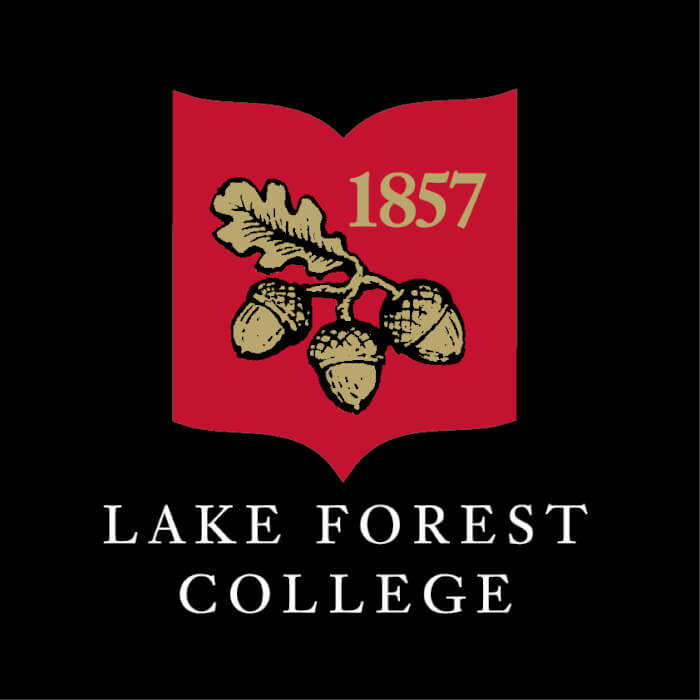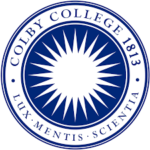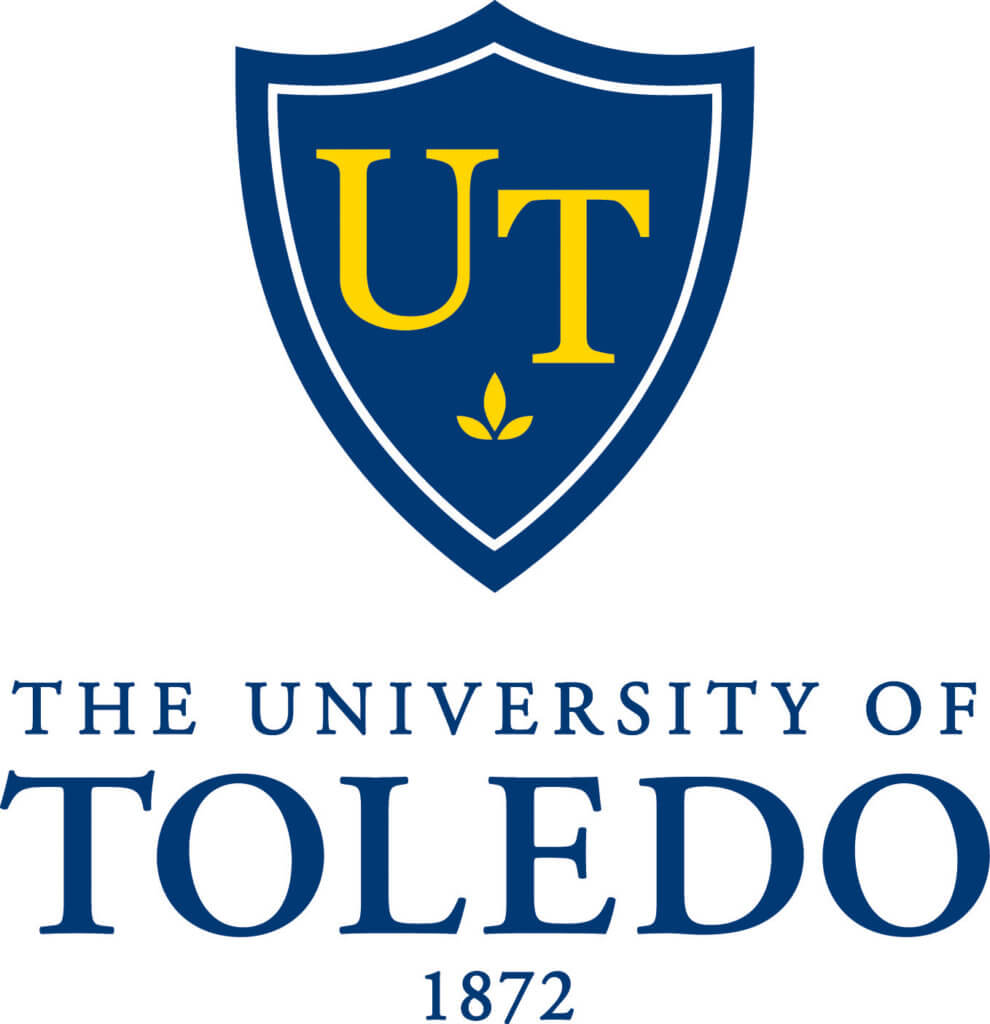Essential Information
In the U.S., programs in African studies are offered at the bachelor’s and master’s levels. Undergraduate and graduate certificates may also be available.
Bachelor’s degree programs in African studies consist of class lectures and internships, and guide students in examining African culture as well as art and literature.
Master’s-level programs might emphasize world affairs and current issues, and generally allow students to conduct independent research in African studies leading to a thesis project. Applicants seeking admission into a Master of Arts in African Studies program must hold a bachelor’s degree and present satisfactory scores from the Graduate Record Exam (GRE). Many programs also require letters of recommendation, a college essay and a resume detailing academic and professional experiences related to African studies.
African studies certificates are available at the undergraduate and graduate levels and are usually taken alongside a bachelor’s and master’s course of study. They emphasize the social sciences and humanities, and could offer unique study opportunities in an African country.
Bachelor’s Degree in African Studies
A bachelor’s degree in African studies focuses broadly on the past and present social, political and economic changes affecting members of the African community in North America (United States and Canada), Africa, the Caribbean, South America and Europe. The curriculum combines classroom instruction, internships, and research, community and civic projects. A typical bachelor’s program offers students standard general education classes along with general electives in history, religion, politics, literature and economics.
Common courses include:
- Pre-colonial African history
- Harlem renaissance studies
- African art history
- African American literature
- Caribbean literature
- African archaeology
Master’s Degree in African Studies
Master’s degree programs in African studies allow students to choose an area of concentration where they develop original research for a thesis. Research work may be conducted in such areas as music, dance, language, literature, public health or urban planning, and may be performed individually or in groups.
Common courses include:
- African world affairs
- African contemporary issues
- African language studies
- Urban and rural development
- Public health issues
Certificate in African Studies
Certificate programs allow students to study the social, historical, cultural, economic and political issues of Africa through classroom lecture, conferences and workshops. Besides coursework, students have the opportunity to study abroad in Africa. They may travel for an academic year, summer or semester and visit such areas as Tanzania, Ghana, Kenya and Morocco. African studies certificate programs require approximately 12-18 credits with heavy concentration in the social sciences and humanities.
Common courses include:
- African music
- African American dance
- African international relations
- African policy and law
- African political studies
- African civilization studies
Popular Career Options
Graduates of a bachelor’s degree program in African studies may find entry-level work with civil rights organizations, government agencies, political action groups, social services agencies and public relations firms. Positions may include the following:
- Marketing executives
- Public relations assistants
- Community organizers
- Public interest advocates
- Social workers
Graduates with a bachelor’s degree who want to further their education and receive higher-paying positions may go on to acquire master’s degrees in African studies. Holders of a Master of Arts in African Studies may find positions at hospitals, law firms and museums in such titles as:
- Public health coordinators
- Psychologists
- Lawyers
- Museum curators
Employment Outlook and Salary
After graduation, individuals with a doctoral certificate in African studies may find employment at colleges, universities or museums. The U.S. Bureau of Labor Statistics (BLS) predicted a 9% increase in jobs for postsecondary teachers, including college professors, between 2019-2029. This job growth is much faster than the average for all occupations. The BLS projected 12 percent (much-faster-than-average) job growth for museum technicians and conservators during the same period. Historians, the BLS projected, could expect average growth of 3% from 2019-2029 (www.bls.gov).
As of May 2020, the median annual wage for area, ethnic and cultural studies professors was $78,840 per year; historians earned a median annual salary of $63,100, and museum technicians and conservators earned a median salary of $45,710.
Students can pursue an interest in African studies as part of a bachelor’s or master’s degree program, or through certificate programs. After graduation, students may find employment in the areas of government, education, and law.
#10 Lake Forest College
Lake Forest, Illinois
Bachelor’s in African American Studies
Student-Faculty Ratio: 12 to 1
Total Enrollment: 1,512
Standardized Testing Requirements: test scores are optional
Points: 16

Students in the cheap African American Bachelor’s program at Lake Forest College will take a critical look at the African American experience through the point of view of communications, economics, philosophy, and sociology/anthropology and more! The major curriculum will be comprised of the following components:
- an introductory course
- literature course
- two African-American history courses
- philosophy course
- 3 electives
- a senior studies requirement
Classes include History and Philosophy of Slavery, Equity and Social Justice in Education, Black Diaspora Freedom Struggles, and Protest and Police in U.S. History. Students are encouraged to engage in a student-internship. Lake Forest College is accredited by the Higher Learning Commission.
Net-Price: $27,131
#9 Howard University
Washington, District of Columbia
Bachelor’s in African American Studies
Student-Faculty Ratio: 10 to 1
Total Enrollment: 9,139
Standardized Testing Requirements: requirements vary
Points: 16

Offered through the Social Science Division in the College of Arts & Sciences, Howard University offers a low-cost Bachelor’s in African American Studies. All students will have research opportunities supported by specific advisors. Study abroad opportunities to 6 different locations are available. Students also have access to an African American Resource Center and can also engage in internships! Sample classes include Commercial Exploitation of the Third World, Intro to Africana Studies, Programs for Black Economic Development, and Seminar on Teaching Black Studies. Howard University is accredited by the Middle States Commission on Higher Education.
Net-Price: $19,196
#8 University of Iowa
Iowa City, Iowa
BA in African American Studies
Student-Faculty Ratio: 16 to 1
Total Enrollment: 31,656
Standardized Testing Requirements: requirements vary
Points: 17

The University of Iowa offers a low-cost BA in African American Studies. The curriculum will address three different areas:
- history, religion and the diaspora;
- literature and performing arts;
- media, politics, and society
Student resources include an African American Cultural Center and an African American Studies Student Association. Students will also benefit from seminars and lecture series. For students seeking extended studies, a graduate degree and/or a graduate certificate is available. The University of Iowa is accredited by the Higher Learning Commission.
Net-Price: $15,817
#7 Colgate University
Hamilton, New York
Bachelor’s in African American & Latin American Studies
Student-Faculty Ratio: 9 to 1
Total Enrollment: 2,969
Standardized Testing Requirements: scores required
Points: 18

Colgate University takes a little different approach for its affordable African American studies degree program. You will major in African American and Latin American Studies and then get an emphasis in African American studies. What is so invigorating about this program is it not only focuses on the past heartbreaks of African American people but also examines the significant contributions they have made in history and modern culture. Elective include classes like African American Humor, The Archaeology of Race and Ethnicity in America, American Texts and Contexts, and Fugitive Mobilities: Migration and Environmental Imagination in 20th-Century America. Colgate University is accredited by the Middle States Commission on Higher Education.
Net-Price: $23,058
#6 Colby College
Waterville, Maine
Bachelor’s in African American Studies
Student-Faculty Ratio: 10 to 1
Total Enrollment: 2,000
Standardized Testing Requirements: test scores optional
Points: 18

Colby College offers a low-cost Bachelor’s in African American Studies. In the program, students will examine people of African descent, especially in the US, the Americas, and the Caribbean. The program is interdisciplinary and will examine subjects like anthropology, economics, literature, government, history, music, religious studies, and sociology. Study abroad opportunities are available in South Africa or Ghana. You’ll learn through classroom study, lectures, cultural events, and film. The program is offered as a major or a minor. Colby College is accredited by the New England Commission of Higher Education.
Net-Price: $20,689
#5 Arizona State University
Scottsdale, Arizona
BA in African American Studies
Student-Faculty Ratio: 23 to 1
Total Enrollment: 38,540
Standardized Testing Requirements: requirements vary
Points: 20

Located in Scottsdale Arizona, Arizona State University offers a cheap BA in African American Studies. Classes range from the Making of Modern Africa to The Global History of the Trans-Atlantic Slave Trade to Precolonial Africa. A versatile study abroad option is available, with options from 1 week to 1 year. In fact, students can choose from over 250 programs in 65 different countries. Graduates will be ready to take on careers in fields like civil rights organizations, colleges and universities, political action groups, and law firms. Arizona State University is accredited by the Higher Learning Commission.
Net-Price: $14,166
#4 University of Toledo
Toledo, Ohio
Bachelor’s in Africana Studies
Student-Faculty Ratio: 20 to 1
Total Enrollment: 20,237
Standardized Testing Requirements: requirements vary
Points: 21

The University of Toledo offers a low-cost degree in Africana Studies. Students will learn through an experiential learning method, and be able to take all they learn into the communities in which they work. Students will also reap the benefits of flexible learning (you can take some of your courses online!), and students will also work closely with faculty on a required senior seminar. Students will also participate in hands-on learning through service-learning opportunities. Study abroad options are available too! The University of Toledo is accredited by the Higher Learning Commission.
Net-Price: $16,588
#3 University of Florida
Gainesville, Florida
Bachelor’s in African American Studies
Student-Faculty Ratio: 18 to 1
Total Enrollment: 52,218
Standardized Testing Requirements: scores required
Points: 22

The University of Florida offers an affordable Bachelor’s in African American Studies. After the completion of all general education requirements, students will take 30 credit hours of the required major core curriculum. Classes include Key Issues in African American & Black Atlantic Thought, Mentoring At-Risk Youth, Introduction to African American Studies, and Poverty & Welfare American History. Students can also choose to double major in African American Studies and Political Science (or another related major). UF is accredited by the Southern Association of Colleges and Schools, Commission on Colleges.
Net-Price: $11,313
#2 University of Pennsylvania
Philadelphia, Pennsylvania
Bachelor’s in Africana Studies
Student-Faculty Ratio: 6 to 1
Total Enrollment: 25,860
Standardized Testing Requirements: scores required
Points: 23

You can earn a cheap Bachelor’s in African American studies at the University of Pennsylvania. Students can choose to specialize in one of three areas: African Studies, African Diaspora Studies, and African American Studies. So this program has a little bit of whatever you’re looking for! Within the curriculum, you will start with Intro classes rooted in sociology. Next, you will take classes like Homelessness & Urban Inequality, Discrimination: Sexual and Racial Conflict, Religious Ethics and Modern Society, The American South, and more. You can target your electives to customize your degree in the way you choose! The University of Pennsylvania is accredited by the Middle States Commission on Higher Education.
Net-Price: $26,266
#1 University of Texas Austin
Austin, Texas
Bachelor’s in African and African Diaspora Studies
Student-Faculty Ratio: 18 to 1
Total Enrollment: 51,832
Standardized Testing Requirements: scores required
Points: 25

The University of Texas at Austin offers an affordable Bachelor’s in African and African Diaspora Studies. Students will choose 1 of 4 tracks:
- Critical Race, Gender, and Sexuality Theories
- Performance, Music, Art, and Literature
- Language, History, and Behavioral and Social Sciences
- Law, Education, Health, and Policy
Next, students will take courses in two different geographic areas related to the Diaspora. In addition, a minor of 15-21 credit hours is also required. Options for a minor could include Philosophy, LGBTQ Studies, Women and Gender Studies, and American Sign Language. A community internship and senior seminar are also required. The University of Texas at Austin is accredited by the Southern Association of Colleges and Schools, Commission on Colleges.
Net-Price: $14,156
About an Affordable Bachelor’s Degree in African American Studies
If you are earning your affordable Bachelor’s degree in African American Studies, you can expect an interdisciplinary or multi-disciplinary liberal arts degree program that explores the complex experiences (cultural, social, political and historical) of people of African descent. In addition, you’ll study issues of discrimination, as well as the African diaspora (the mass migration of African people to the Caribbean, the Americas, and other parts of the world).
Coursework in the major:
In this discipline, the liberal arts coursework will examine a variety of subjects, including history, arts, philosophy, literature, the humanities, and more.
Students can expect the core classes to include options like:
Intro to African American Studies: an introductory course, which typically follows a chronological timeline
African American Research Methods: in these research courses, students will learn to critically evaluate and analyze the available body of social science research
African American Literature: an English course that will survey of the body of work of African American authors, and how their works have impacted literature and culture.
After completing core coursework, students can also customize their degree with electives. Options could include topics in religion, politics, literature, anthropology, history, women’s rights, and more.
Online vs. On-Campus Bachelor’s in African American Studies:
Deciding whether to take your coursework online or on-campus will be up to you. While many students are choosing the online route to accommodate life or work obligations, some are still wanting the support and connection that an on-campus experience brings. There is much to be gained from having that interaction and common shared experience with your peers. On-campus, you can expect to have an array of student support services, like counseling, advising, tutoring, writing centers, math centers, career services, and more. What’s more is that you can also take your coursework in a hybrid delivery method, meaning some of the curricula would be delivered online. You’ll be able to have the best of both worlds if you want it. Engage in the on-campus experience with the added benefit of some online coursework. But again, the decision will ultimately be up to you!
How do I get admitted to a program in African American Studies?
Each school will have its own admission requirements, but generally, you can expect schools to base your admission on factors like:
- high school diploma/equivalent/GED
- transcripts
- SAT/ACT scores
- letters of recommendation
- entrance essay
- extracurricular activities/service/volunteer work
If standardized testing isn’t your thing–consider a school that doesn’t require them or where they are optional.
To make sure everything’s in line, check the details of your program to see exactly what you need in order to apply. Pay close attention to application deadlines to ensure that you’re submitting your application on time–you don’t want to miss your chance! They come a little faster than you might think.
Program length:
Typically, earning a Bachelor’s degree takes about 4 years if you are a full-time student with no credits. But depending on a few factors, that length could change! Some could include:
- whether or not you already have college credit from high school
- if you’ve already taken courses at a college and whether or not they transfer
- how many credits your program requires
- whether you are a full-time or part-time student
- the method of course delivery
Depending on the above factors, the time it takes to earn your degree could vary. You can accelerate the time by taking online or summer courses, or you can lengthen it by taking your classes part-time. There is no right or wrong answer; it’s all up to what works best for your schedule and your path.
Affordable Bachelor’s Degree in African American Studies FAQs
Q: Is a Bachelor’s in African American Studies a good degree?
A: There is something unique about this degree: it doesn’t set you up for a specific career as most degrees do. And yes, we understand that seems vague and a bit scary, but the point? Because you’ll get a broad understanding of cross-cultural and diversity issues, you can take everything you learn about African American studies and apply it to a variety of careers. You’ll have job fluidity, meaning you can ebb and flow with the seasons of life or if your interests change, you could consider a different career. So for that? We say yes, it’s a good degree to consider!
Q: What kind of Bachelor’s degree will I get with an African American Studies major?
A: Most of the time, you will earn a Bachelor of Arts because the coursework is heavily rooted in a liberal arts curriculum. This will include general coursework in the disciplines of history, literature, writing, philosophy, sociology, psychology, creative arts, foreign language, and more.
Q: What is the difference between African American Studies and Africana Studies?
A: In this ranking, you’ll see degrees in both. Yes, they are connected, but they are not the exact same thing. Africana Studies is the more broad subject, focusing on people of African descent, their experiences, and the Diaspora. Though the degree will take a more global approach, the coursework will still include options to study African American Studies in detail. So, yes, this degree will give you insight into that subject. On the other hand, African American Studies will focus more on the experience of black people who live in the Americas. But in order to study that, you’ll also have to study coursework related to Africana studies. While the terms aren’t necessarily interchangeable, both disciplines will have curriculum overlap. Deciding which degree to pursue will likely depend on your career goals, your interests, and what your school offers.
Q: What skills do I need to study the field of African American Studies?
A: These skills aren’t necessary, but to be successful in this discipline, you will need a love for liberal arts curriculum and helpful skills like:
- critical thinking skills
- analytical skills
- written and communication skills
Q: What are some related degrees I could pursue?
A: We get that not every school will offer a low-cost degree in African American Studies. You could also try looking for Africana Studies or Black Studies, which have similar themes and curriculum. Or you could major in something else and minor in Black Studies (or a related option).
Q: Can I work while I get my affordable undergrad degree in African American Studies?
A: This decision will be completely up to you! But, yes, you can. It might be wise to wait to find a job until after your first semester or so–so you can see how much time your studies will take before you dive into a job!
Note: If you need to work while also attending school, try looking for a job that doesn’t take too much mental energy so you can concentrate on your studies. A simple desk job could work well! Also, consider a job on-campus so you can cut down on commute time.
Q: When can I start my in African American studies?
A: Most schools follow a traditional path of 2 start times per year, Fall and Spring. But that doesn’t mean every school will follow that path. While most schools follow the semester path, others follow a quarter system. Check your school’s details to find out!
Q: Is the cost of my books included in the tuition cost?
A: Not usually. You’ll want to save extra money to buy your books for your classes. Try buying them used to save money.
Low-Cost Bachelor of African American Studies Career FAQs
Q: What can I do with an affordable Bachelor’s degree in African American Studies?
A: One of the most amazing things about this degree is that you can use this degree and your passion for many different career avenues. With your Bachelor’s degree, you could pursue careers such as:
- Human services worker
- Activist
- Community organizer
- High School History Teacher
If you continue your education and get a subsequent degree like a Master’s degree or higher, you could pursue careers like:
- History Professor
- Human Services Professional
- Research Historian
- Museum curator
- Historian
- Public administrator
- Diversity Studies Professor
Q: What kind of salary can I expect with a degree in African American Studies?
A: Salaries will range depending on your career. According to the US Bureau of Labor Statistics median pay data from 2018, you can expect a salary like:
- Social and Community Service Managers: $65,320 per year
- High School Teacher: $60,320 per year
- Museum Curator: $48,400 per year
- Administrative Service Manager: $96,180 per year
Q: Is a cheap Bachelor’s in African American Studies worth it in the long run?
A: We know that college is a big investment, so you’ll want to know that your money is being put to great use. But the answer to this question will depend on the type of job you pursue. For example, job growth for social service managers is expected to grow by 13% in the next ten years, which is much faster than average. Other careers like a High School History Teacher will only grow as fast as average, about 4%.
Q: Should I join a professional organization in the African American Studies field?
A: We think you absolutely should! Joining a professional organization will keep you up-to-date on current research or professional practices, as well as help you network within a group of like-minded peers. When it comes to the discipline of African American studies, you can join a general organization or an organization directly related to your job–like the Association of Black Sociologists (ABS), etc.